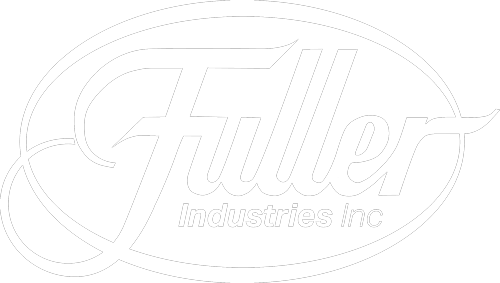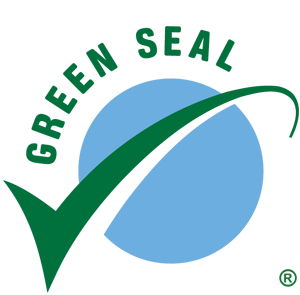Case Study: Agriculture Brushes Are Built for the Harvest and Beyond

Brushes can be the right tool for the job on the farm, even in ways some farmers have not thought about yet.
For Fuller Custom Brush, some of the most interesting clients that bring us their projects work in the agriculture sector. Brushes can serve many functions beyond just sweeping up and scrubbing down, though obviously they’ve proven their worth in those capacities in countless ways. But brushes also take on numerous tasks in the agricultural world that many would never consider, and do them far better than any other solution devised, reducing waste, improving efficiency of operations, and, we know about this very well, tackling jobs where no other solution could work.
Why are brushes so much better than any other solution? It’s simple really: They’re so customizable, a client can request a certain type and diameter of fill, or bristle, and, in so doing, adjust the stiffness with which the brush contacts the work, whether it be a kind of grain, or a soft fruit, or a potato. Moreover, one can further tweak the length of the bristle, the density of the fill, or the trim shape of the brush—straight or angled? Or both? The options may astound you.
And that’s just one example. Other aspects include whether a staple set brush or a metal channel strip brush—using our patented Fullergript construction—or a cylinder brush using a modification of the same rugged design.
Our customers who work in the agriculture sector understand their needs, and, when they explain them to us, we work with them to develop the brush they need. The end result is a brush designed for the job at hand, specifically, which performs the task.
Our goal is to inspire existing and prospective customers to realize that solutions to their challenges in agriculture or ideas to improve on their existing methods are just a consultation away. Here are some of the jobs our brushes take on. Because our custom brush designs are built to solve proprietary problems, we can only share so many details. Here are some thoughts to help prime the pump.
Harvesting: This is one time when one is able to understand the magnificence of the human hand. It’s capable of strength and delicate work, has fingernails to scrape and fingertips to pluck. And once upon a time, it was the best solution out there. Then it became apparent that machines, when properly designed, can step up the efficiency in those backbreaking jobs. Brushes can play a large roll, with cylinder brushes removing the produce, in some cases leaving the plant itself intact.
Processing: Brush bristles can improve efficiency of some processes while helping to reduce waste and improve the quality of resulting produce. Think of removing husks, shells, or skin from seeds, beans, or vegetables, and the solution becomes clear. A bristle with just the right stiffness applied in the right way could make quick work of a process.
Material Handling: Brushes can be built to specifications for virtually any handling application, from moving harvested produce from elevator to truck or guiding it along conveyors. Less bruising on fruits and vegetables can also mean premium prices at market.
Seed Metering and Simulation: Seed is a substantial expense to farmers and needs to be distributed to the density level needed. Small seed has a greater tendency to overplant than large seed, and flat seed has a similar tendency to overplant than round seed, and seed coatings and anti-fungal treatments are still other factors. Fuller Custom Brush can work with farmers to design and manufacture a brush to modify a machine to the meter rate needed that functions at the optimal RPM.
Auger Flighting: Using a corkscrew-shaped brush contained within a tubular shaft can move material while keeping the shaft clear, but only if the right brush is used for the job. Farmers may find the brushes used for their auger flighting could work better if the bristles were a bit longer, or the trim was a little different. Our experienced designers can work with the specific needs and challenges to make the brush function to the farmer’s spec.
Sealing: Brushes can seal doors and hatches to prevent dust or debris from entering sensitive areas, or keep it in, where it belongs. Brush seals offer longevity and durability, and a level of customizability to work with rough or uneven surfaces that other seal materials cannot match.
Air Intake Screens: Machines that need air work harder when the flow is obstructed, and the impact on parts, reduced lubricant life, and overall functional efficiency. Having a regular cleaning routine for a specific part like the screen that keeps debris out of the machine’s inner workings will keep the machine in service. A brush designed for the task makes short work of the project, and could be the key to getting the most out of that substantial capital investment in farm equipment. By dialing in just the right fill and trim, a farmer can give the intake screen a quick once-over with the right brush, and even stretch the time required between full tear-down cleaning sessions.
Vibration and Debris Control: The bristles of a brush offer a unique proposition. Individually, they may not change the game, but united in the structure of a brush, those bristles can collectively make contact with surfaces, yet not be fixed. While it would seem to be of little use, the results can be astounding. A brush designed for the job can damp or dissipate vibration or shield debris, yet can not impede the key motion of the machinery. Both of these functions could improve performance of farm equipment while also reducing wear.
Chain Oilers: Drip oilers lubricate chains at one point, using a brush oiler bathes the entire critical chain in a protective coating of oil. The result, keeping machinery running at speed, even in dusty, dirty environment. Less downtime and machine repair means less expense and more productivity.
Cleaning Trommel Screens: A trommel screen begins to lose efficiency of operation soon after it begins to clog up, and it’s not long before it’s not sorting the material according the spec it’s designed for. Worse yet, it gets more off track the longer it goes. The answer is to find a brush that can help keep it clear with every rotation. A cylinder brush designed specifically to work with the trommel screen can eliminate downtime and increase efficiency.
Sweeping Up and Scrubbing Down: Of course, brushes can do so many things, but they still help with clean up better than anything. And with custom brushes designed to get into the tight spaces of specific machines, they can help reduce equipment downtime and push down maintenance and repair costs.




